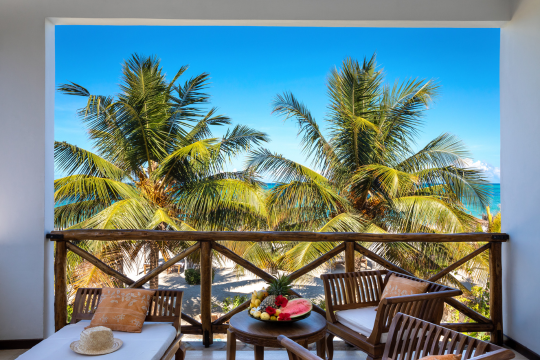"A hobby is something that takes a lot of time, that isn't lucrative, but that you enjoy doing."
I’ve spent many years talking about the “accidental hobbyist” trap that many travel advisors fall into, but when Stephanie Goldberg-Glazer of Live Well, Travel Often joined me on The Travel Business Unpacked podcast, she summed it up perfectly with that one statement.
I spent years as an accidental hobbyist myself. After leaving Wall Street, I threw myself into travel planning with pure passion, thinking that loving what I did would somehow translate into a sustainable business. I was busy all the time, helping friends and acquaintances plan trips, researching hotels until midnight, crafting detailed itineraries that took hours to create. But when I looked at my bank account? The numbers didn't reflect the energy I was pouring in.
Stephanie, or SGG as we like to call her, was Gifted Travel Network's #1 top producer for 2024. She's the Chief Experience Officer of Live Well, Travel Often, and her business has grown into something most advisors dream about. However, she didn't start with any advantages - no wealthy network, no travel industry background. Just a side hustle that, in her own words, was taking a lot of time but wasn't lucrative.
For years, Stephanie treated her travel business exactly like I did in my early days. She'd pick up clients when she had time, handle things casually, and hope it would somehow grow into something bigger. The work felt meaningful because she loved travel, but the business side was an afterthought.
Then she had what she calls her "all in" moment. She looked at how much energy she was putting into this work and realized something had to give. Either she needed to commit to building a real business, or she needed to stop pretending this was going anywhere.
She chose to go all in.
That decision changed how she showed up for everything. Instead of just hoping for referrals, she started systematically tracking where her best clients came from. Instead of saying yes to every inquiry, she began choosing clients who valued her expertise. Instead of winging it, she built systems that could support real growth.
The thing that I find so impressive about Stephanie is that her success isn't built on any secret strategy or marketing hack, but instead on showing up consistently for her clients, especially when things go wrong.
During COVID she fought on their behalf for every refund. When personal emergencies hit her clients, she was the one making middle-of-the-night phone calls to airlines. She doesn't just book trips; she becomes someone her clients know they can count on.
That kind of trust isn't something you can fake or fast-track. But when you earn it, your business transforms. Stephanie's growth comes almost entirely from referrals and repeat clients who wouldn't dream of booking with anyone else.
Another key component to Stephanie’s success is the amount of discipline she brings to her business. She tracks everything - commission rates, client lifetime value, which trip types generate the best referrals. She knows her numbers cold, and she uses that data to make smart decisions about where to focus her energy.
This is where a lot of advisors get stuck. They love the creative, relationship side of travel planning, but they resist the business side. Stephanie figured out that you can't have sustainable success without both. When you know your numbers, you can be strategic instead of reactive. You can invest your time in the clients and trip types that actually build your business, instead of just staying busy with whatever comes your way.

Stephanie's story proves something I learned the hard way in my own journey, which is that you don't need perfect circumstances to build a successful travel business. You need clarity about what you're building and the commitment to see it through.
The advisors I work with who make this shift always tell me the same thing, that everything gets easier once they stop treating their business like a side project. They start pricing confidently because they know their value. They attract better clients because they're no longer desperate for any client. They build momentum because they're finally moving in a consistent direction.
A hobby feels safer. You can tell yourself you're not really failing because you're not really trying. But it also keeps you stuck in the same place, year after year, pouring energy into something that doesn't pour energy back. Building a business requires commitment. It means investing in systems, tracking results, and making hard choices about who you work with. But it also means creating something that can actually support the life you want.
If you're reading this and thinking about your own travel business, here's what I want you to consider: Are you running a hobby or building a business?

If you love hearing stories like Stephanie’s, tune into The Travel Business Unpacked podcast! Each episode dives deep into the real stories, practical strategies, and transformational moments that turn travel dreams into thriving careers. Listen and subscribe on Spotify and Apple Podcasts, and check out Stephanie's full episode here.


.png)
.png)
.png)
